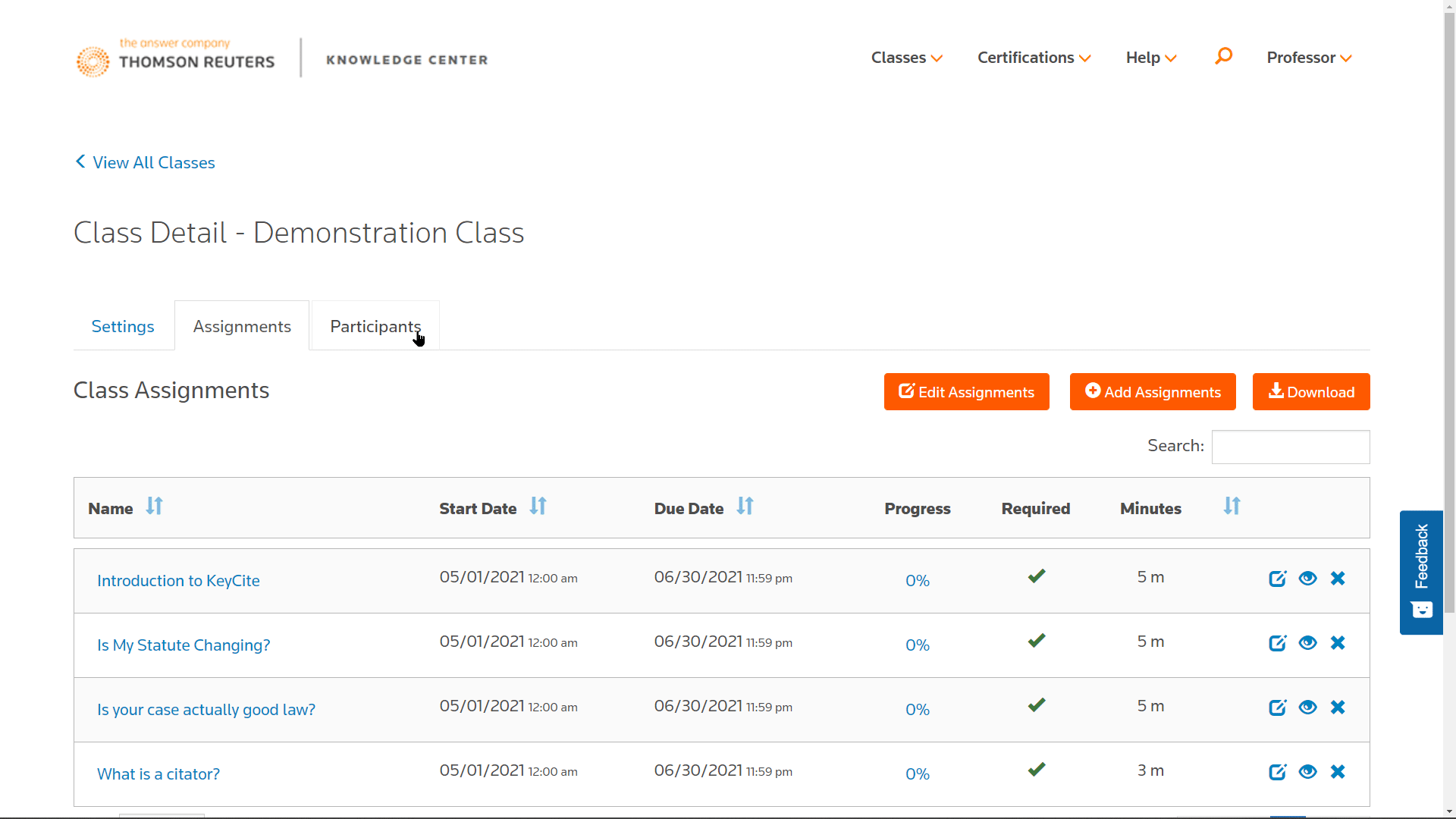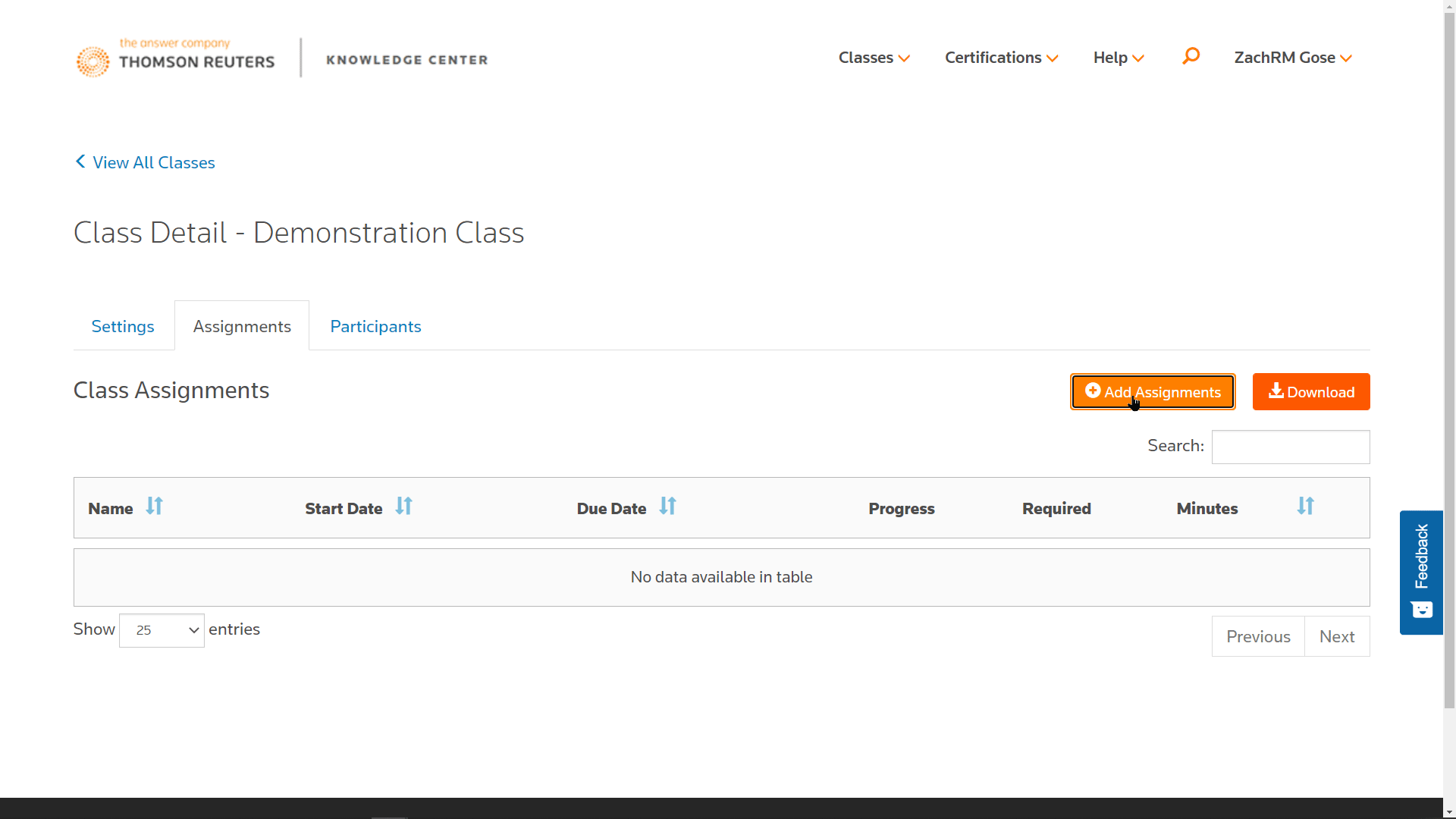Fall 2023 Open Memo Contest
 Westlaw's "No Skips" Tips Playlist
Westlaw's "No Skips" Tips Playlist








The right search terms can make a difference. Here is an easy way to come up with smart search terms.






About this event



You'll use this code to make a copy of the sample course.
Go to the Knowledge Center and click on the Copy Another Class button.
Enter your copy code in the Enter Class Copy Code box and click the Validate button.
Change your course title, set your course dates and set your copy option to Assignments Only.
Click on Copy Course and you're all set to share your course with students.
You'll use this code to make a copy of the sample course.
Go to the Knowledge Center and click on the Copy Another Class button.
Enter your copy code in the Enter Class Copy Code box and click the Validate button.
Change your course title, set your course dates and set your copy option to Assignments Only.
Click on Copy Course and you're all set to share your course with students.
You'll use this code to make a copy of the sample course.
Go to the Knowledge Center and click on the Copy Another Class button.
Enter your copy code in the Enter Class Copy Code box and click the Validate button.
Change your course title, set your course dates and set your copy option to Assignments Only.
Click on Copy Course and you're all set to share your course with students.
If the case arises out of the U.S. Constitution, U.S. laws, rules or regulations, or a treaty signed by the U.S., and the federal courts have exclusive jurisdiction, then the case must be litigated in federal court.
If the case does not arise out of the U.S. Constitution, U.S. laws, rules or regulations, or a treaty signed by the U.S., and there is not complete diversity between the plaintiffs and defendants (a.k.a they are both from different states or one is a citizen of a foreign country), then the case must be litigated in state court.
(1) A counter-offer is an offer made by an offeree to his offeror relating to the same matter as the original offer and proposing a substituted bargain differing from that proposed by the original offer.
(2) An offeree’s power of acceptance is terminated by his making of a counter-offer, unless the offeror has manifested a contrary intention or unless the counter-offer manifests a contrary intention of the offeree.
In the Restatement of this Subject, negligence is conduct which falls below the standard established by law for the protection of others against unreasonable risk of harm. It does not include conduct recklessly disregardful of an interest of others.
Demurrer: A means of objecting to the sufficiency in law of a pleading by admitting the actual allegations made by disputing that they frame an adequate claim. Demurrer is commonly known as a motion to dismiss.
(1) A counter-offer is an offer made by an offeree to his offeror relating to the same matter as the original offer and proposing a substituted bargain differing from that proposed by the original offer.
(2) An offeree’s power of acceptance is terminated by his making a counter-off, unless the offeror has manifested a contrary intention or unless the counter-offer manifests a contrary intention of the offeree.
testing footnote

[ninja_form id=2]

School: West Academic Test Account Only
This email confirms approval of your order of Law School registration keys required on July 02, 2019. View your order in Password Access Central as needed. If requested, your keys are listed below. Keys are registered at lawschool.westlaw.com/register. Users will need to create their individual OnePass credentials (Username and Password) as well as complete a Law School Profile.
Law School Registration Key(s) to be assigned.
Registration Steps are as follows
1. Visit lawschool.westlaw.com/register
2. Create your OnePass credentials
The email address you use for OnePass will be the same one used for TWEN communications.
3. Complete a Law School Profile
Please contact Technical Support at 800-850-9378 (WEST) or email west.twensupport@thomson.com with questions about registration. For questions about PAC, please contact your Academic Account Manager.
Westlaw Academic Team
In the Restatement of this Subject, negligence is conduct which falls below the standard established by law for the protection of others against unreasonable risk of harm. It does not include conduct recklessly disregardful of an interest of others.